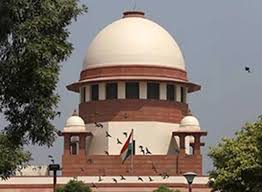The Ministry of Environment, Forest and Climate Change of the Government of India granted environmental clearance (EC) to the appellant to develop the housing complex. On 18th April 2007, the Board granted CTE under the Air and Water Act. In 2013 and 2015, the appellant applied for renewal of the CTE. The applications were rejected. On 29th December 2015, the Board issued a show cause notice of closure under Section 33-A of the Water Act and Section 31-A of the Air Act. The notice also called upon the appellant to show cause why the appellant should not be penalised under the relevant provisions of the Air Act and the Water Act. The appellant replied to the said notice. (Para 1)
In January 2018, the appellant preferred an appeal before the Appellate Authority established under the Air and Water Acts by invoking Section 31 of the Air Act and Section 28 of the Water Act for setting aside the order dated 21st June 2017 passed by the Chairman of the Board granting approval to prosecute the appellant. The Appellate Authority, by judgment and order dated 15th March 2018, quashed the order of approval on the ground that, subsequently, ex-post facto CTE has been granted to the appellant. Being aggrieved by the said order of the Appellate Authority, the Board preferred an appeal under Section 16 of the National Green Tribunal Act, 2010, before the National Green Tribunal (NGT). By the impugned judgment, the appeal was allowed, and the order dated 15th March 2018 of the Appellate Authority was quashed and set aside. While doing so, in paragraph 12, observations were made by the NGT that EC granted on 29th August 2017 cannot condone the illegal construction raised from 9th April 2012 to 29th August 2017. NGT held that the environment clearance granted on 10th April 2007 expired on 9th April 2012. (Para 3)
He submitted that even assuming without admitting that the EC expired on 9th April 2012, renewal or grant of a fresh EC was not required as the superstructure of the building was complete before 9th April 2012, and for completing the further construction, EC was not required. In any event, EC was granted on 29th August 2017. The learned senior counsel urged that in any event, NGT had no reason to deal with the controversy regarding the effect of the absence of EC as the appeal was limited to the legality and validity of the order dated 15th March 2018 passed by the Appellate Authority. (Para 4)
Therefore, the only issue in the appeal preferred before the NGT was regarding the legality and validity of the order of the Appellate Authority and the approval granted on 21st June 2017 to prosecute the appellant. While dealing with the appeal, NGT ought not to have gone into the issue of whether the EC granted earlier expired on 9th April 2012. Considering the limited scope of appeal, NGT ought not to have gone into the question of whether the construction carried out by the appellant between 9th April 2012 to 29th August 2017 was illegal. Therefore, what is held in paragraph 12 of the impugned judgment will have to be set aside. (Para 7)
The said challenge at the instance of the appellant ought not to have been entertained by the Appellate Authority as the appellant was bound by condition no.4 in the ex-post facto CTE granted on 18th October 2017. In fact, the judgment of the Appellate Authority shows that the attention of the Appellate Authority was invited to the aforesaid condition no.4. After having acted upon the ex-post facto CTE dated 18th October 2017, the appellant cannot be allowed to approbate and reprobate. Therefore, interference by the Appellate Authority by its judgment dated 15th March 2018 was illegal and uncalled for. To that extent, the impugned judgment of the NGT cannot be interfered with. (Para 11)
The findings recorded in paragraph 12 of the impugned judgment are set aside on the ground that the issues decided thereunder were beyond the scope of appeal preferred before NGT. The issues which are dealt with in paragraph 12 are kept open. These issues can always be decided in appropriate proceedings in accordance with the law. All contentions on that behalf are left open; (Para 12(a))
SUPREME COURT OF INDIA
2023 STPL(Web) 427 SC
[2023 INSC 999]
M/S Sweta Vs. Estate Pvt.Ltd. Gurgaon Vs. Haryana State Pollution Control Board & Anr
Civil Appeal No. 2212 of 2020-Decided on 10-11-2023
https://stpllaw.in/wp-content/uploads/2023/11/2023-STPLWeb-427-SC.pdf







